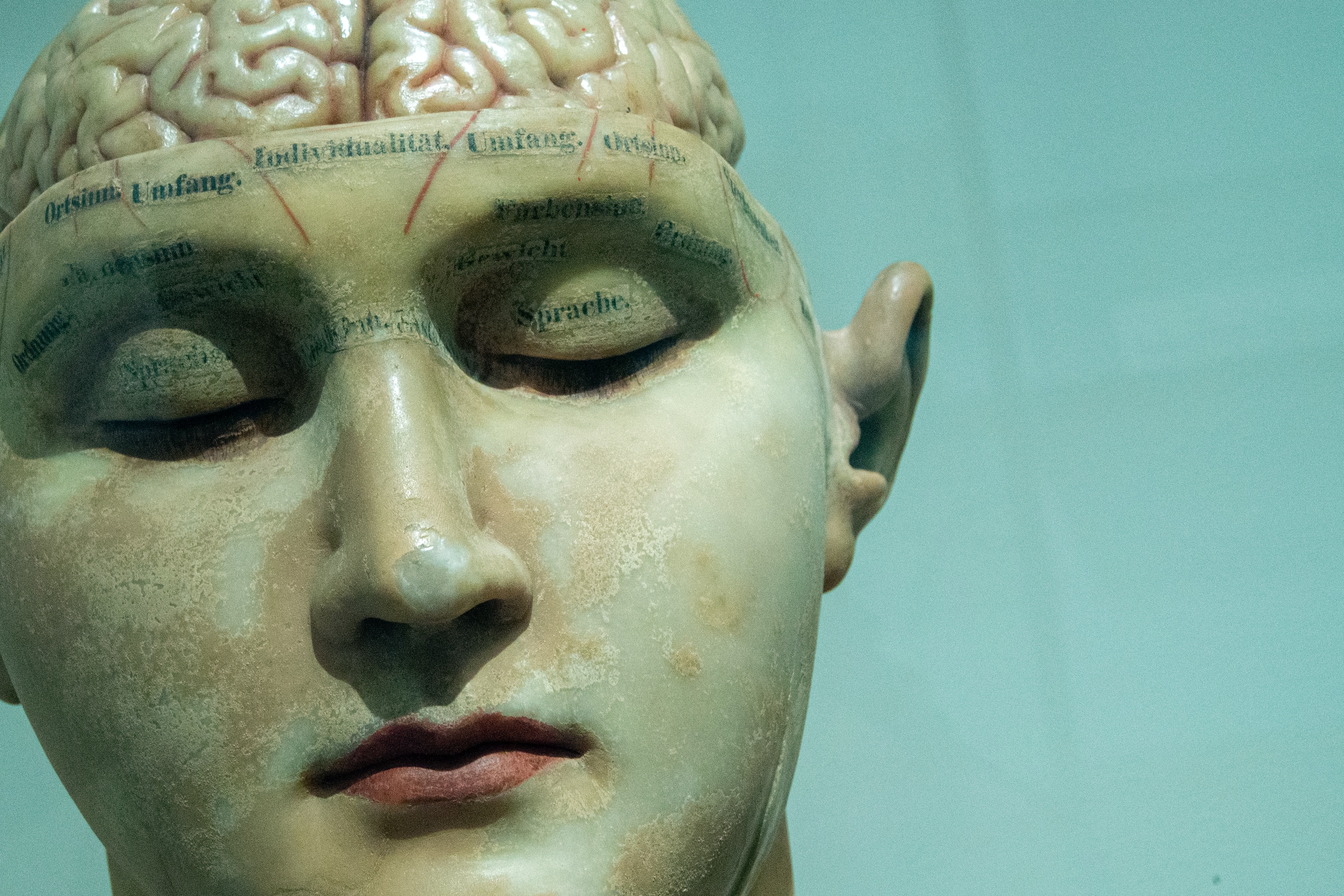Psychology (two years) – Master of Science

Our Master's Programme in Psychology (two years) is strongly research-based and builds on a three-year Bachelor's Programme in Psychology.
In this challenging, research-oriented master's programme MSc Psychology, which is unique in this form nationwide, you will acquire advanced competencies in the areas of "research methods", "health promotion and disease prevention" as well as "social cognition and decision research". You will not only be able to understand and master psychological research, but also to think in a networked and inferential manner, to critically assess and reflect on scientific results and findings as well as to apply them in practical areas.
You will also further optimize your teamwork and communication skills in addition to your reasoning and problem-solving abilities. The requirements of scientific as well as application-oriented psychological professions have shaped the subject-specific and interdisciplinary qualification goals of the MSc Psychology. The programme is based on our guiding principle of "teaching based on research", combining academic excellence and practical relevance.
A central element of the programme is a "research project" lasting several months, during which you will be intensively involved in current projects of the research groups. This way you can gain professional competencies and experience in research.
In this study programme, you have many flexible options allowing you to advance your personal areas of interest in a range of psychology and non-psychology electives, or spend one or two semesters abroad at one of our numerous international partner universities. With our MSc Psychology, you will have excellent career opportunities in university or non-university research and teaching. For example, you can continue with doctoral research in the Department of Psychology, or work in advisory services, the health care sector, in industry and business, or in methodologically oriented fields.
In the Department of Psychology, we provide extensive information and advisory services to guide our students to their individual goals. We grant times for study abroad stays, voluntary internships and other measures to promote our students' individual continuing education.
Overview
| Degree | Master of Science |
|---|---|
| Programme start | Winter semester |
| Period of study | 4 semesters |
| Application period | 7.5.-15.6. |
| Admission restrictions | yes |
| ECTS | 120 |
Why study Psychology (two years) in the University of Konstanz?
- Research orientation with high practical relevance
- Future-relevant focus on
- Research methods
- Health promotion and disease prevention
- Social cognition and decision research
- Research project lasting several months
Content
Prospects and opportunities
Career prospects
The MSc Psychology will provide you with excellent career opportunities both in numerous fields of applied psychology, including jobs in advisory services, health care, in industry and business, or in methodologically oriented fields, and especially in university or non-university research and teaching. The Department of Psychology in Konstanz offers great conditions for individual doctoral research, as well as structured doctoral programmes through the Konstanz Research School. Potential career fields include:
Science, research and teaching
- Universities, research institutions
Health psychology
- Promotion and maintenance of good health
- Prevention and treatment of illness
- Rehabilitation
- Identification of psychological factors that contribute to the emergence of illness
- Identification of determinants of the processes for coping with and recovering from illness
- Influence of the interaction between patients and the health care system on individual health behaviours
Public Service, society and administration
- Educational psychology
- School psychology (psychological services at state or local level, adult education institutions, schools and pre-school institutions)
- Legal psychology/ police psychology (judicial bodies, police administrations)
- Environmental psychology
- Policy consulting
- Traffic psychology
- Sports psychology
Industrial, organizational and business psychology
- Occupational health and safety
- Human resources (e.g. design of staff selection processes)
- Consulting of organizations (e.g. conception of training, support of change processes)
- Human factors / user experience consulting and design
- Market research
Check out our interview series #dreamjob – starting your career, where university alumni share their personal experiences with starting their professional career (in German).
Programme structure
Programme start
Winter semester
Academic structure
Advanced modules semesters 1-2
- Module 1: Research methods A (8 ECTS)
- Module 2: Health promotion and illness prevention A (12 ECTS)
- Module 3: Social cognition and decision research A (8 ECTS)
- Module 4: Research methods B (12 ECTS)
- Module 5: Health promotion and illness prevention B (8 ECTS)
- Module 6: Social Cognition and decision research B (12 ECTS)
Internship (semester 3)
- Module 7 (22 ECTS)
Supplementary courses (semester 3):
- Module 8 (8 ECTS)
Master's thesis (semester 4):
- Module 9 (30 ECTS)
Total: 120 ECTS
Please check the Exam regulations (partly in German) for more information about the programme structure.
Internship and study abroad
Internships
A central element of the programme is a "research project" lasting several months, during which you will be intensively involved in current projects of the research groups. This way you can gain professional competencies and experience in research. Internships are completed alongside your studies and have a scope of at least 540 hours. They should be completed by the beginning of the fourth semester.
Study abroad
Study abroad stays are generally possible and encouraged. We offer Erasmus+ and numerous other exchange programmes.
Requirements
What interests and skills should I have?
- Keen interest in the main topics "research methods", "disease prevention and health promotion" as well as "social cognition and decision research"
- Strong ability to understand the methods of scientific work
- Ability to reflect on the use of these methods
- Very good skills in mathematics
- Good English skills
Language skills
Foreign language skills
You do not have to document any foreign language skills. However, as large parts of the research literature are written in English, good English skills are highly recommended.
German language skills
International applicants need to submit documentation of their German language skills at level DSH-2 or TestDaF 4 or higher. Alternatively, you may submit other recognized language tests or recognized school certificates. The University of Konstanz does not offer preparatory German language courses or approved German language exams. For this reason, you have to submit an accredited proof of your German language skills along with your application.
Language(s) of instruction
The language of instruction and examinations usually is German. Some individual courses are held in English.
Admission requirements
Required qualifications:
- Bachelor's degree with the grade "good" (2.5) or better in a three-year (or more) programme at a state or state-recognized institution of higher education or Berufsakademie in the subject psychology, or a subject related to the bachelor's programme Psychology at the University of Konstanz
- Minimum of 20 hours of participation as a test subject
- Research or work experience in the field of psychology totalling at least 10 weeks (full-time), or a correspondingly longer time for part-time work
Meeting these requirements does not guarantee you admission to this programme, as only a limited number of students can be admitted.
Fees
All students enrolled at the University of Konstanz are charged a semester fee each semester, similar to all other German universities. Here you can find the current semester fee and its individual components.
Tuition fees for first degree studies for certain international students
Since winter semester 2017/18, the state of Baden-Württemberg has required some international students to pay tuition fees for their first degree studies. The following students are not required to pay tuition fees: citizens of a country within the European Union (EU) or the European Economic Area (EEA), doctoral students and certain “Bildungsinländer” (e.g. non-EU citizens with a German “Abitur”). More detailed information can be found here.
Each year, the University of Konstanz grants exemptions to a limited number of particularly gifted international degree-seeking students in accordance with the university’s “Begabtenbefreiungssatzung” (statutes governing the exemption of gifted students). More detailed information can be found here.
Tuition fees for second degree studies for all students
All students are required to pay tuition fees for their second degree studies. More detailed information can be found here.
Application and application documents
This study programme has admission restrictions.
An application is possible during the following period: 7.5.-15.6. (winter semester). There may be other deadlines if you are applying for admission to a higher semester (for instance, if you are changing subjects or universities). For more information please consult the university website.
Application documents
- Documentation of your bachelor's degree as per § 3 para. 1 a of the admission regulations. If you have not received your degree certificate yet, please submit records of your academic achievements as per § 3 para. 2 of the admission regulations
- Documentation of at least 20 test subject hours
- Documentation of work or research internships in the field of psychology totalling a minimum of 10 weeks (full-time), or a correspondingly longer time for part-time work


